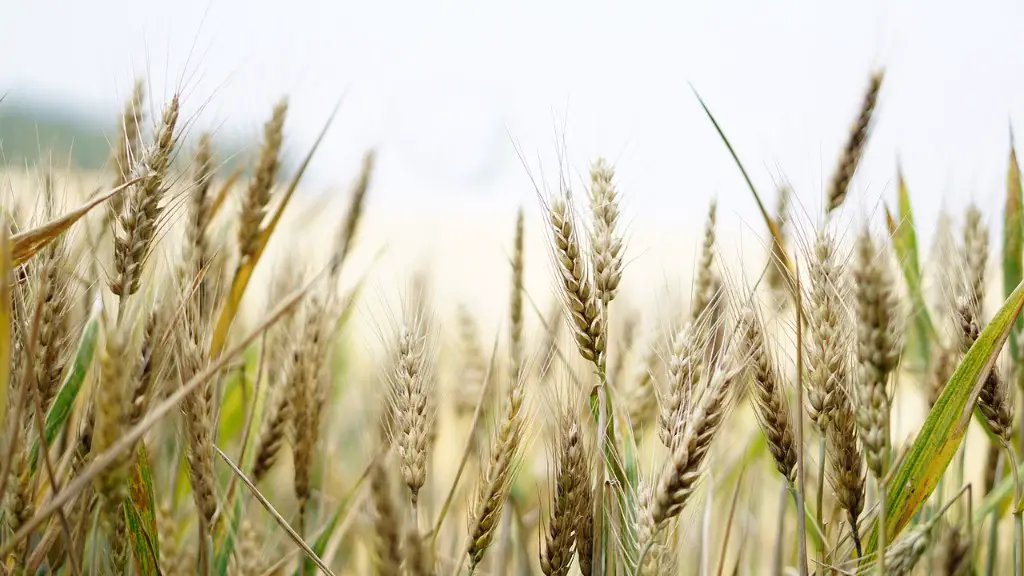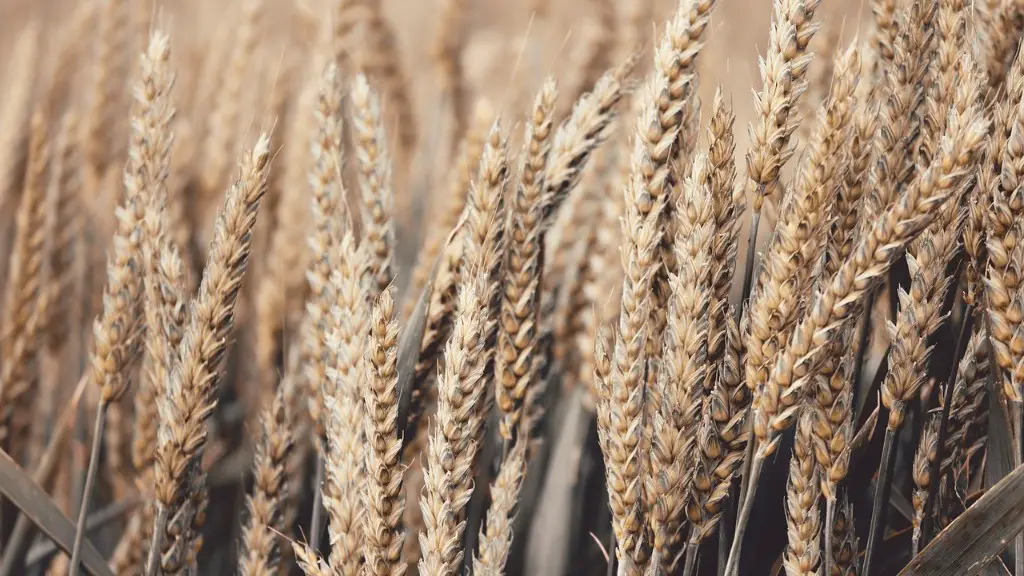Agriculture is the main source of food for the world. It is the process of producing food, feed, fiber and other desired products by the cultivation of certain plants and the raising of livestock. Agricultural products provide the majority of the world’s calories and protein. The pros of agriculture are that it provides a lot of food for the world, creates jobs, and helps the economy.
1. Agriculture provides food for people all over the world.
2. Agriculture creates jobs for people all over the world.
3. Agriculture helps to conserve natural resources.
4. Agriculture helps to preserve local cultures and traditions.
5. Agriculture provides a way for people to connect with the natural world.
What are pros and cons of agriculture?
Agriculture is one of the most important inventions in human history. It allowed for the domestication of plants and animals, which led to the development of civilizations. Agriculture also allowed for the specialization of humans, which led to the development of artists, leaders, and scribes. However, agriculture also has its disadvantages. One of the biggest disadvantages is that it can lead to conflicts over access to the food supply. Another disadvantage is that bad weather can damage crops.
Agriculture is the leading source of pollution in many countries. Pesticides, fertilizers and other toxic farm chemicals can poison fresh water, marine ecosystems, air and soil. They also can remain in the environment for generations.
What are the pros and cons of sustainable agriculture
Sustainable agriculture has many advantages, but it also has some downsides. For example, it can take longer for farmers to carry out their farm operations. However, the benefits of sustainable agriculture typically outweigh the drawbacks.
The Agricultural Revolution was a time of great experimentation with new crops and new methods of crop rotation. These new farming techniques gave soil time to replenish nutrients, leading to stronger crops and better agricultural output. Advancements in irrigation and drainage further increased productivity.
How did agriculture benefit us?
Agriculture, food, and related industries are vital to the US economy, contributing roughly $1264 trillion to GDP in 2021. This sector accounts for 54 percent of the US economy, with the output of farms contributing $1647 billion, or about 7 percent of GDP. The agriculture, food, and related industries are critical to ensuring the country’s food security and providing employment for millions of Americans.
Industrial agriculture has both its pros and cons. On one hand, it can increase food production, but on the other hand it increases the risk of animal cruelty. It is important to weigh these factors when deciding whether or not to support industrial agriculture.
What are 3 benefits of agriculture?
Thank you for your question. Agriculture is essential for human survival as it is responsible for producing food, shelter, and clothing. Raw materials such as crops, silk, and wood come from agriculture, making it a vital part of our lives. Without agriculture, we would not be able to survive.
There are many pros and cons to making a decision. A pros and cons list is a simple but powerful decision-making tool that can help you understand both sides of an argument. Pros are listed as arguments in favor of making a particular decision or action. Cons are arguments against it.
What are 3 problems of agriculture
The triple challenge of feeding a growing population, providing a livelihood for farmers, and protecting the environment is one that must be tackled together if we are to make sustainable progress in any of them. There are a number of ways to do this, but one key way is to set the table for success by ensuring that all three of these challenges are addressed in a holistic and integrated way. This means looking at the big picture and finding ways to innovate and work together that consider all three of these issues together. It also means being willing to sacrifice short-term gains for the sake of long-term sustainability. Only by taking this approach will we be able to meet the triple challenge and make progress that lasts.
Large-scale, conventional farming is not sustainable in the long term. It contributes to climate change, pollutes air and water, and depletes soil fertility.
What are the 5 major consequences of agriculture?
Agriculture is a vital part of our everyday lives, but it can also have a big impact on the environment – both positive and negative. On the positive side, agriculture can help reduce CO2 levels, improve air quality, provide habitat for wildlife, and provide food. On the negative side, agriculture can lead to soil erosion, water pollution, contribute to climate change, and deforestation. It’s important to be aware of both the positive and negative effects of agriculture so that we can make the best decisions for our environment.
The second advantage is the production of healthy food. Sustainable agriculture practices can lead to improved soil health, which in turn produces healthier plants that are more resistant to pests and diseases. This results in food that is not only healthier for consumers, but also requires less use of pesticides and other chemicals.
The third advantage is the improved financial stability of farmers. Sustainable agriculture practices can help farmers to reduce their input costs, increase their yields, and improve the quality of their products. This can lead to higher profits and a more stable income for farmers.
Overall, sustainable agriculture has many advantages that make it a desirable option for farmers and consumers alike. It is important to remember, however, that sustainable agriculture is not a “one size fits all” solution. Each farm and each farmer will need to tailor their practices to their specific circumstances.
What are 5 benefits of sustainable farming
Organic agriculture is a form of farming that is based on using natural processes, rather than relying on synthetic inputs. Organic agriculture can offer many advantages, including protecting against GMOs, making better use of soil and land, increasing the welfare of animals, reducing pollution, and benefiting long-term.
Agriculture is vital to society in many ways. It provides food and livelihoods for people across the globe, supports economies through trade, and builds strong communities.
What are 4 benefits of agriculture to a country?
Agriculture is vital for many reasons. It is the main source of raw materials for many industries, it is important to international trade, it plays a big role in a nation’s revenue, and it provides employment for millions of people. It is also crucial to a country’s development and can help heal the environment. In addition, agriculture is often closely linked with war, as many countries rely on agriculture to support their economies and feed their populations.
agriculture is the key to human development and prosperity. it is the backbone of our economy and it is vital to our way of life.
Conclusion
-Agriculture can provide a stable source of food and income.
-With modern technology and advances in agriculture, farmers are able to produce more food with less labor and expense.
-Agriculture can help to preserve and conserve natural resources.
-Agricultural products can be used for fuel, clothing, and other materials.
-Agriculture can promote economic development and provide employment opportunities.
There are many pros to agriculture, such as the ability to provide food and other products for people and animals, the creation of jobs, and the positive impact on the environment.





